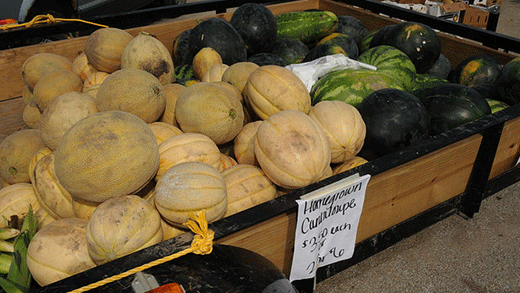
The Supplemental Nutrition Assistance Program (SNAP) provides assistance to help people learn about good nutrition and make their food dollars stretch further. (File photo)
Apply now to receive updated SNAP benefits, says state coordinator
Changes may mean families can receive maximum food assistance through May
April 27, 2020
MANHATTAN, Kan. – The coordinator of two programs in Kansas that help to provide nutritious food and other assistance to low-income families is encouraging the state’s residents to apply as soon as possible to receive recently-updated benefits.
Lisa Ross, who oversees the administration of the Supplemental Nutrition Assistance Program-Education (SNAP-Ed) and the Expanded Food and Nutrition Education Program (EFNEP) in Kansas, said that the federal government has approved sweeping changes to the benefits available through those two programs.
Among the updates, households currently receiving SNAP benefits will receive the maximum monthly allotment for April and May.
In addition, due to the pandemic the Kansas Department for Children and Families (DCF) has temporarily waived work requirements and training required to receive food assistance. And, Ross said, certification periods for SNAP benefits have been increased from six months to 12 months for most households, and to 24 months for seniors and persons with disabilities.
But to receive the enhanced benefits, a household member must apply through the DCF self service center, which is available online. That site also lists eligibility requirements and a full list of benefits available.
Ross said Kansas SNAP-Ed staff members have been working diligently to build relationships with community partners so that SNAP participants have healthy food available to them.
“Our SNAP-Ed staff has been working hard to develop food access resource lists for their communities,” she said, noting that the over-riding purpose of the program is to help people lead healthier lives, learn about good nutrition and make their food dollars stretch further.
In Kansas, SNAP-Ed is implemented through K-State Research and Extension and its network of offices in every county. Ross said that people with questions on how to apply or with questions regarding SNAP-Ed can contact their local extension office for information.
Ross stressed that Kansans should not wait to apply for SNAP benefits; the sooner they apply, the sooner they can receive assistance.
She also encouraged those families whose children may qualify for free or reduced school lunches to do so now, even though Kansas schools are not in session. This is especially important if a household member has lost a job or the household income has changed during the COVID-19 pandemic.
Local school districts will have information on how to apply for the free or reduced lunch program.

